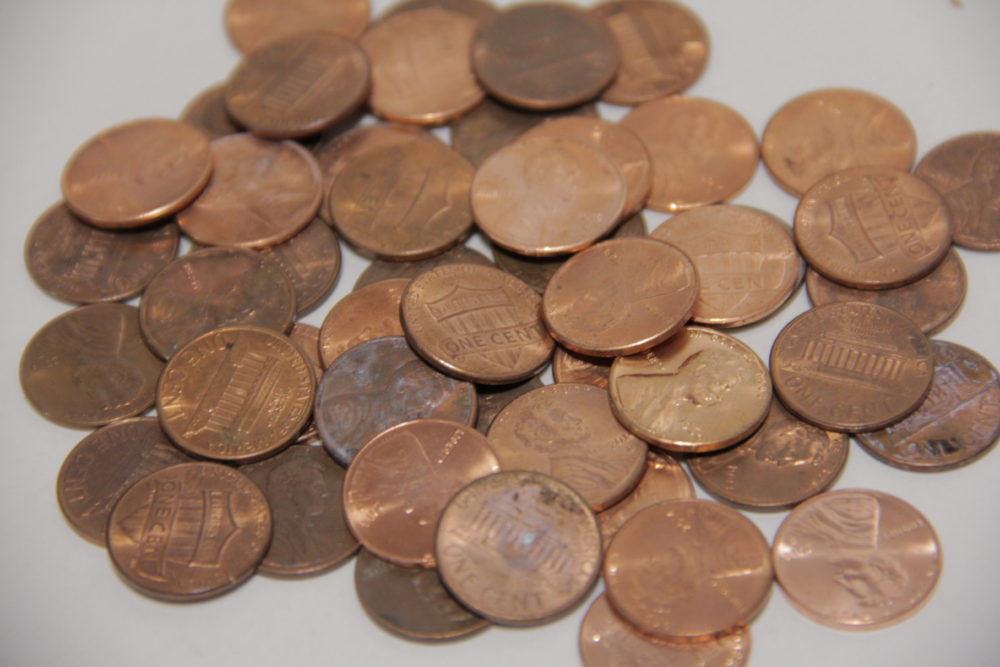
By Jessica Nguyen
There is an old saying that goes, “Find a penny, pick it up. All day long, you’ll have good luck.” While picking up a penny might make you lucky, it won’t make you rich. Pennies are worthless and it is time to get rid of the infamous coin.
The penny had great value when it was introduced in 1793. At the time, an ice cream cone cost a nickel and a piece of candy cost a penny, but times have changed; there is nothing that you can buy with a penny today. Most vending machines and parking meters do not accept them, and using pennies at cash registers often earns you dirty looks because no one wants to count them out.
Producing a penny today actually costs more money than it is worth. It costs $1.82 to produce and distribute the one-cent coin—$1.56 to actually make it, $0.24 for admin fees and $0.02 to move it to the Federal Reserve bank. The production of pennies adds to the United States national debt and comes from taxpayers’ money; in a year, 8.426 billion pennies are produced, costing $68.8 million.
Before 1982, pennies were made of 95% copper and 5% zinc, but pennies are now made of 97.5% zinc and only 2.5% copper. Zinc mining is terrible for the environment because chemicals and toxins leach into surrounding soil and streams and, eventually, your food, potentially causing health problems. The zinc used in pennies is imported from China, which costs $2.1 million to the U.S. trade deficit with China. Extracting zinc from the ore also uses a great deal of energy and contributes to climate change.
The zinc used to make pennies is also what makes them heavier to carry around, weighing 2.5 grams compared to other coins like dimes, which only weigh 2.268 grams. Today, many people use credit and debit cards and send money through PayPal, CashApp, Venmo and other money transfer apps, making cash and coins even less essential.
These are all the reasons to eliminate the penny, but it’s commonly argued against because getting rid of the penny would cause transactions to be rounded to the nearest nickel, leading to a “rounding tax” in which prices are manipulated so that they are always rounded up instead of down. On the other hand, people have argued countries that have gotten rid of the penny, such as Canada, have not experienced such tax and widespread increase in prices.
Another obstacle to getting rid of pennies is that they’re important to charities. “Penny drives,” hosted by charities, such as Leukemia and Lymphoma Society, the Salvation Army and Ronald McDonald House, raise hundreds of dollars each year since people willingly give away their pennies. However, eliminating pennies doesn’t lead to the death of such charities because other coins with greater value will still exist and many are always eager to donate their spare change.
What’s also ironic about the infamous coin is that many people have an emotional connection to pennies. In a poll, a majority of Americans were against getting rid of the penny. People have also pointed out that getting rid of the penny would be disrespectful to Abraham Lincoln, who they argue is the most influential president. Yet, President Lincoln is also on the five-dollar bill, which is a much more cost-effective and honorable way to remember him.
To get rid of the penny, Congress has to pass a law that stops pennies from circulation and the U.S. Mint from making them, leaving the nickel as the smallest unit of money. Many anti-penny activists also believe in eliminating the nickel, which costs $0.06 cents to make, therefore leaving the smallest coin as the dime, which only costs $0.039 to make so the government doesn’t lose money making it. Getting rid of pennies and nickels rounds everything off to the nearest $0.10, making purchases easier to calculate. Some have even suggested getting rid of coins altogether because inflation destroys their value.
When we look at the facts, continuing to produce the penny makes no cents and it is time that we make a change.





